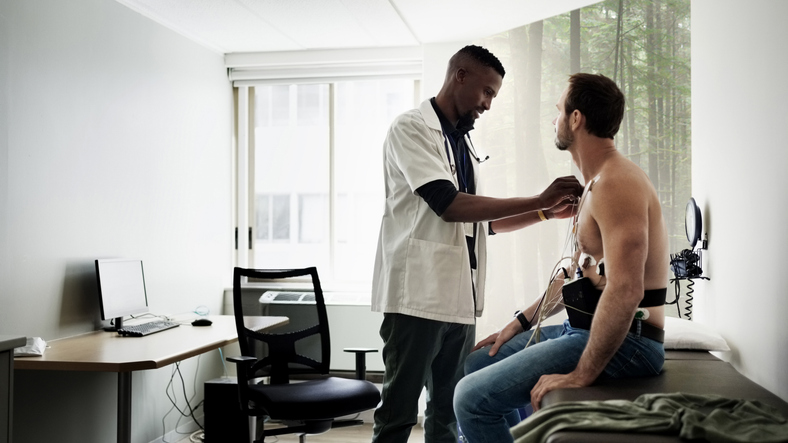Despite making up roughly 13–14% of the U.S. population, Black physicians constitute just about 5.7% of all doctors nationwide, a startling mismatch in representation. Thankfully, the Young Doctors Project (YDP), a multigenerational mentoring and career pipeline program for high school boys, is on a mission to change this alarming statistic.
Founded in 2012 by Drs. Malcolm Woodland and Torian Easterling—and supported by Howard University’s College of Medicine and Department of Psychology— the program is designed to help Black men become health professionals and to address local health inequities. Participants who join engage in a rigorous 4-week Summer Health Academy at Howard University and continue their learning through Saturday academies, according to the organization’s website.
During the training process, which is facilitated by Howard University doctoral students from the College of Medicine and Department of Psychology, students are introduced to preventive health, mental wellness, community health concerns, and vital screening practices. After a year of instruction, the Young Doctors are allowed to put their education into practice. They begin service learning, leading free health clinics in parks, recreation centers, and churches across Southeast D.C. under the supervision of YDP medical staff. The program participants do everything a professional doctor in the field would do in a medical facility, from conducting blood pressure recordings, BMI and vision screenings, to assessing mental health reports and hosting nutrition seminars to educate families.
In a July 16 interview with the Bay State Banner, licensed psychologist and Howard University alumnus Dr. Woodland shared that his motivation to launch the Young Doctors Project stemmed from witnessing the deep bonds between children and elders in his Anacostia neighborhood, inspiring him to channel that connection into community-focused health empowerment.
“I got to thinking, our greatest asset is these children that everybody loves and knows, right? What if we turn them into health ambassadors in their neighborhoods?” he said.
In June, a group of remarkable Young Doctors DC students in grades 8–12 spent a meaningful day with the National Alliance on Mental Health, where they learned directly from Black leaders in the field. During the program, they heard powerful personal stories and explored new ideas about care, connection, and community support, all experiences designed to inspire them and expand their understanding of what’s possible in the health industry.
The Young Doctors Project will inevitably help more Black doctors enter the medical field, and the need is critical in order to boost Black longevity. A groundbreaking 2023 JAMA Network Open study showed that with every 10% increase in Black primary care physician representation in a county, life expectancy among Black residents rose by about one month, all-cause mortality decreased, and disparities between Black and White mortality rates narrowed. The effects were particularly notable in areas with high poverty rates, suggesting that increasing Black physician representation could be a key driver of improved health outcomes in underserved communities.
The Young Doctors Project currently has chapters in New York, D.C., and Roanoke, Virginia, but Woodland shared that he and his team are working to expand the initiative.
“I want it to be an institution. I want it to be a true pipeline. I want it to operate without me when I’m long gone. I want there to be a Young Doctors Project in multiple cities,” the health leader said during his interview with The Bay State Banner. “It’s about brotherhood. It’s about support. It’s about creating spaces for the safe intellectual development of Black boys.”
SEE MORE:
The Color Of Health: Changing The Narrative Around Mental Health In The Black Community
Why Black People Should Be Tracking Their Sleep
Empowering Futures: Young Doctors Project Is Building Black Health Leaders
was originally published on
newsone.com



